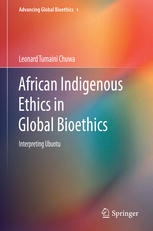

Most ebook files are in PDF format, so you can easily read them using various software such as Foxit Reader or directly on the Google Chrome browser.
Some ebook files are released by publishers in other formats such as .awz, .mobi, .epub, .fb2, etc. You may need to install specific software to read these formats on mobile/PC, such as Calibre.
Please read the tutorial at this link: https://ebookbell.com/faq
We offer FREE conversion to the popular formats you request; however, this may take some time. Therefore, right after payment, please email us, and we will try to provide the service as quickly as possible.
For some exceptional file formats or broken links (if any), please refrain from opening any disputes. Instead, email us first, and we will try to assist within a maximum of 6 hours.
EbookBell Team

0.0
0 reviewsThis book educates whilst also challenging the contemporary schools of thought within philosophical and religious ethics. In addition, it underlines the fact that the substance of ethics in general and bioethics/healthcare ethics specifically, is much more expansive and inclusive than is usually thought. Bioethics is a relatively new academic discipline. However, ethics has existed informally since before the time of Hippocrates. The indigenous culture of African peoples has an ethical worldview which predates the western discourse. This indigenous ethical worldview has been orally transmitted over centuries. The earliest known written African text containing some concepts and content of ethics is the “Declaration of Innocence” written in 1500 B.C., found in an Egyptian text. Ubuntu is an example of African culture that presents an ethical worldview. This work interprets the culture of Ubuntu to explain the contribution of a representative indigenous African ethics to global bioethics. Many modern scholars have written about the meaning of Ubuntu for African societies over centuries. Some scholars have viewed Ubuntu as the greatest contribution of African cultures to other world cultures. None of the scholars, however has explored the culture of Ubuntu as providing a representative indigenous ethics that can contribute to global bioethics as discussed in this book.